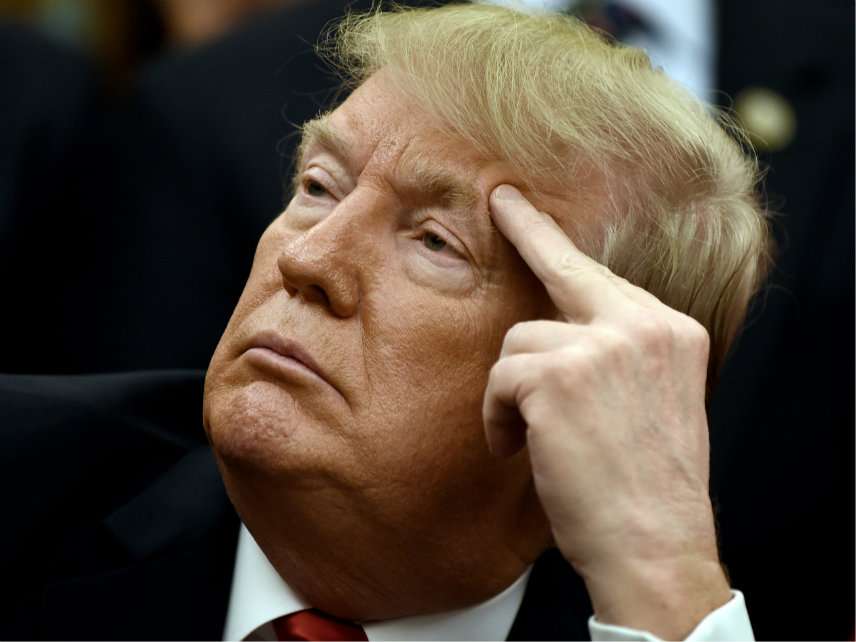The Government Is Definitely Going to Shut Down Tonight. Maybe.
No but really, the shutdown is probably going to happen.

If Congress and the White House can't agree to a spending package by midnight, parts of the federal government will shut down. The chances of a deal being reached seem slim.
First, let's back up for a moment. President Donald Trump is demanding that the spending plan include $5 billion to build a wall on the U.S.–Mexico border. Trump said last week he'd be "proud" to let a shutdown happen over the border wall. But on Wednesday, the administration seemed to be shifting course. "We have other ways that we can get to that $5 billion," White House Press Secretary Sarah Huckabee Sanders said on Fox News, suggesting Trump would sign a bill that didn't include the full amount he was requesting.
That night, the Senate approved a bill to keep the government funded through February. The legislation included $1.3 billion in border security, but no wall money.
You'll be shocked, shocked to hear that the administration then changed course again. Yesterday, House Speaker Paul Ryan (R–Wisc.) revealed that Trump had said he didn't support the Senate bill. Last night, the House voted 217–185 to keep the government fully funded, at least until February. Though the bill includes $5.7 billion in border wall funding, it has virtually no chance of being approved by the Senate. That's because Senate rules require such bills to receive the support of 60 senators. Even if each of the 51 GOP senators approved the bill (which isn't guaranteed), the legislation would need the support of nine Democrats.
That brings us to today. In a tweet this morning, Trump called on Senate Majority Leader Mitch McConnell (R–Ky.) to use the "Nuclear Option," which would allow the House bill to pass in the Senate with a simple majority of 51 votes. Via a spokesperson, McConnell said that wouldn't happen.
McConnell did express his support for the House bill. But that might not matter. As of this writing, the Senate was still voting on a motion to proceed. Such a motion needs only a simple majority, meaning Republicans should theoretically have the votes. But Sen. Jeff Flake (R–Ariz.) opposes the motion, and some GOP senators weren't even in attendance.
And again, even if the motion passes, it has no chance of being approved by 60 senators.
The president, for his part, has signaled that the shutdown is likely to happen. "The chances" of a shutdown "are probably very good," he told reporters this afternoon. "I hope we don't," he said, "but we are totally prepared for a very long shutdown."
Some Republican senators appear to agree, with Sens. Chuck Grassley (R–Iowa) and Richard Shelby (R–Ala.) essentially saying that unless things change, a shutdown is likely.
There are really just two scenarios in which a shutdown is averted. Either the Senate approves the House's spending bill (again: not going to happen) or the president reverses course once more. The second scenario isn't outside the realm of possibility, as Trump has been known to change his mind.
It's also worth noting that the "shutdown" would not, in fact, shut down the full government. Trump has already approved $931 billion of the roughly $1.2 trillion in proposed funding for the 2019 fiscal year, so those parts of the government will not be affected. Seven remaining bills that need to be approved by the end of the day would fund the National Aeronautics and Space Administration and the Departments of Justice, Commerce, Agriculture, and Homeland Security; the last of those is where Trump wants to direct border wall funding. "Essential" employees from those affected departments would still be on the job, though more than 400,000 of them would have to work without pay.
If a shutdown does happen, it's unclear how long it would last, considering that some lawmakers will be home for the Christmas holiday.


Show Comments (83)